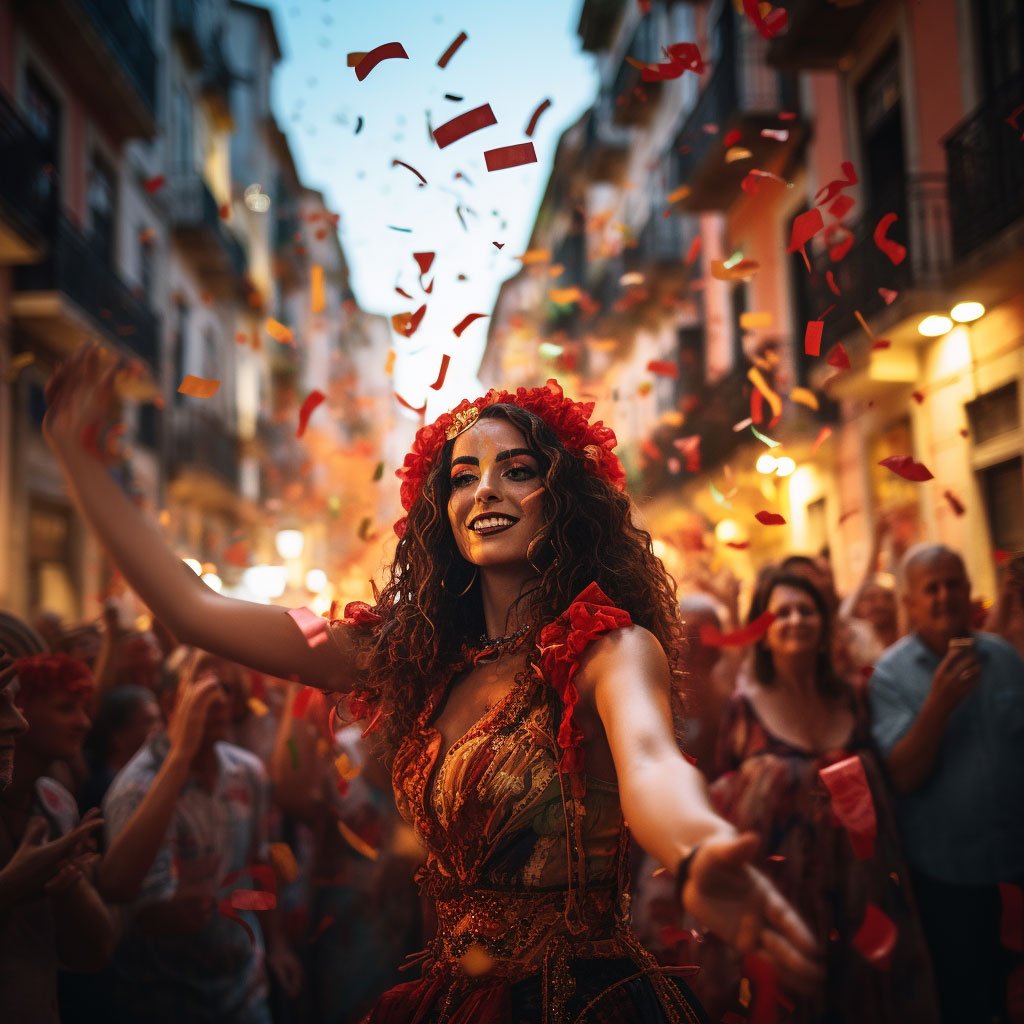Welcome, dear reader, to a journey through the vibrant festivals of Portugal. This beautiful country, known for its rich history and diverse landscapes, is also home to a wealth of cultural festivals. From Lisbon’s Santo António Festival to Porto’s São João Festival, and the traditional Fado music festivals, each event offers a unique glimpse into Portugal’s cultural heritage. So, let’s embark on this festive journey and discover the joy and vibrancy of Portugal’s cultural festivals.

Santo António Festival: Lisbon’s Biggest Street Party
Our journey begins in Lisbon, at the Santo António Festival. Held in June, this festival is a celebration of Lisbon’s patron saint, Santo António. But it’s more than just a religious event. It’s Lisbon’s biggest street party, a time when the city comes alive with music, dance, and festivities.

As we explore the festival, we are captivated by its vibrant atmosphere. The streets are filled with people, the air is filled with the aroma of grilled sardines, and the sound of music and laughter fills the air. We join the locals in the traditional marchas populares, a parade of folk dances and songs, and we are swept up in the joy and excitement of the celebration.
São João Festival: Porto’s Unique Celebration
From the vibrant streets of Lisbon, we journey to the city of Porto, to celebrate the São João Festival. Held in June, this festival is one of the most important and joyous events in the city’s calendar.
The São João Festival is a unique blend of religious and pagan traditions. It’s a celebration of Saint John the Baptist, but it also incorporates ancient midsummer traditions, such as the lighting of bonfires and the releasing of illuminated sky lanterns.

As we explore the festival, we are captivated by its unique traditions. One of the most distinctive is the tradition of hitting each other on the head with soft plastic hammers, a playful gesture that adds to the festive atmosphere. We also enjoy the cascata, a miniature cityscape decorated with figurines, and the regatta of São João, a boat race on the Douro River.
But the highlight of the festival is the fireworks display at midnight. As we watch the sky light up over the Douro River, we are swept up in the magic and excitement of the celebration.
Fado Music Festivals: A Testament to Portugal’s Rich Musical Heritage
Our festive journey through Portugal brings us to the soulful world of Fado music festivals. Fado, a traditional form of Portuguese music, is a testament to Portugal’s rich musical heritage. With its mournful melodies and heartfelt lyrics, Fado is a music that speaks to the soul.

As we explore the Fado music festivals, we are captivated by the powerful performances. The singers, or fadistas, pour their hearts into each song, their voices filled with emotion. The music is accompanied by the Portuguese guitar, a twelve-stringed instrument that adds a distinctive sound to the music.
But Fado is more than just music. It’s a form of storytelling, a way of expressing the joys and sorrows of life. As we listen to the songs, we are moved by the raw emotion and depth of the lyrics. We feel a connection to the performers, to the audience, and to the rich cultural heritage of Portugal.
Conclusion: A Journey Through Portugal’s Cultural Festivals
Our journey through Portugal’s cultural festivals has been a celebration of the country’s vibrant culture and rich heritage. From Lisbon’s Santo António Festival to Porto’s São João Festival, and the soulful Fado music festivals, we have experienced the joy and vibrancy of Portugal’s cultural festivals. It’s a journey that has enriched our understanding of this vibrant country and its diverse cultural heritage. So, let’s continue to explore and celebrate the cultural festivals of Portugal.
